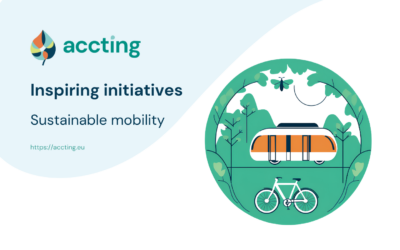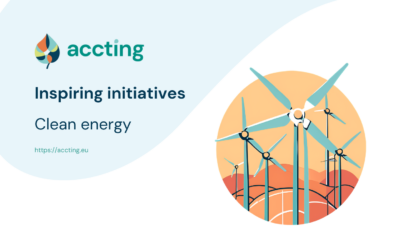
Photo by NOAA
Transformation has become a key word in the sustainability debate. What does sustainability transformation mean? What hinders and what enables transformation? These questions triggered rich discussions in ACCTING’s second seminar, titled “Sustainability and transformative change.”
The word transformation is associated with very significant societal changes, going beyond mere reform and stepwise change. We may think of historical examples such as the abolition of slavery, democratisation and suffrage, and the construction of welfare states. Faced with our planetary crises – climate change, ecosystem collapse, chemical pollution – there is increasing recognition that we ought to transform our societies. Transformative change will involve several spheres: the economy, politics, culture, civil society, lifestyles, and technologies – to name but a few.
There is a broad policy and academic agreement that transformation is needed, but significantly less agreement on what transformation actually means – or how to achieve it. Like other important words, such as sustainability, democracy, and justice, what counts as transformation depends on perspective/standpoint. How actors make sense of transformation can itself be an important hinder and/or enabler of transformation. If you conceive of change as impossible, you will probably adjust your behaviour according to that belief. Such ideas build on the work of Björn-Ola Linnér and Victoria Wibeck at Linköping University.
Whereas the broad uptake of the transformation vocabulary in the sustainability debate is promising, it can also be a risk. Vested economic interests may frame ‘sustainability transformation’ in a narrow technological sense, as a way to justify/greenwash business-as-usual. This, without paying any attention to matters of inequity, discrimination, social injustice, and so on.
The ACCTING webinar was organised in early November 2022, with teams of researchers in the sustainable transitions field from across Europe. It discussed transformation at individual, community, and societal levels, and the importance of a multifaceted understanding of transformation. The discussions linked the themes to a variety of issues, including justice and gender+ perspectives. Participants noted the importance of not putting the additional burden of change on vulnerable groups without at the same time working towards further empowerment and the provision of structural support.
What hinders sustainability transformation? Before jumping to solutions and policy suggestions, we need to properly understand the root causes behind why transformation is resisted. For example, we can learn from a recent study that addressed nine broad factors explaining why climate mitigation has failed, despite more than 30 years of international efforts. One of these is inequity. In addition to being a problem in itself, inequity blocks transformation because it erodes communication and social trust among groups in society, which is a condition for effective collective action. The webinar triggered discussions on this and other problems. Several ‘lacks’ were identified: lack of infrastructure, knowledge and awareness, cultural and educational options, political support, financial resources, affordable alternatives, and so on. Other hinders concerned resistance to change, vested interests, obsolete ways of thinking, gaps between scientific and everyday language, and social distance between groups in society.
What about the flipside: transformation enablers? How to think about transformative agency? In theory, hinders can be converted to enablers. These enablers, or drivers, include technological and social innovation, redistribution of power and resources, engaging new narratives/visions, and transformative learning. Many webinar comments addressed issues related to empowerment: how to empower bottom-up initiatives, solutions, leadership, and movement to challenge existing and unsustainable ways of thinking and acting. While empowerment is needed, it is not enough.
In conclusion: transformation is and must be a long-term, multidimensional process, connected to equity and social justice. We must keep a reflective understanding of its potential, both as an empowering concept and as a rhetorical device that various elites can apply to justify very shallow and narrow conceptions of change.
About the author

Magnus Boström is Professor of Sociology at Örebro University, with research in environmental sociology, the sociology of consumption, and political sociology. Boström is currently doing research on social drivers behind unsustainable mass/excess consumption as well as on drivers to transform lifestyles and reduce volumes of consumption.


